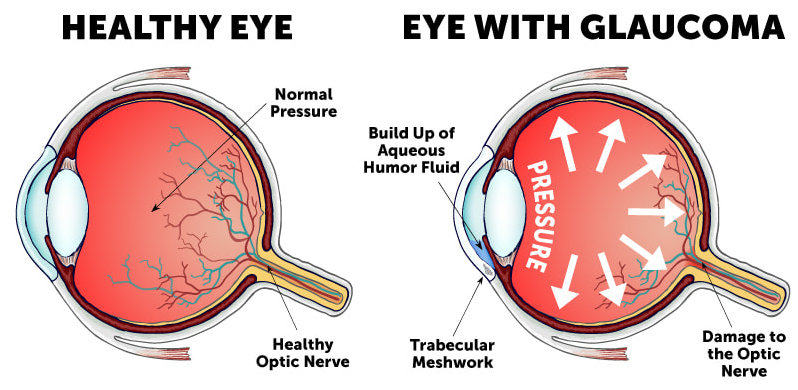
Our eyes are not only windows to the world but also mirrors reflecting our overall health. Among the various eye conditions that can silently affect our vision, glaucoma stands out for its subtle onset and potential sight-threatening consequences. In this blog, we will explore the early signs and symptoms of glaucoma, empowering you to be vigilant about your eye health and seek timely intervention when needed.
1. Understanding Glaucoma: A Sneak Peek into the Silent Thief of Sight
Glaucoma is often referred to as the “silent thief of sight” because it can develop gradually without noticeable symptoms in its early stages. It primarily involves increased intraocular pressure, leading to optic nerve damage and potential vision loss.
2. Subtle Warning Signs: Early Clues That Shouldn’t Be Ignored
– Blurred Vision: Occasional blurriness, especially after watching television or using digital devices, may be an early sign.
– Eye Pain or Discomfort: Unexplained discomfort, mild pain, or pressure in the eyes could be indicative of increased intraocular pressure.
– Halos Around Lights: Seeing halos around lights, particularly in low-light conditions, may signal elevated eye pressure.
– Frequent Changes in Prescription: Frequent changes in eyeglass or contact lens prescriptions without any apparent reason may be a cause for concern.
3. The Sneaky Culprit: Narrowing Peripheral Vision
– Glaucoma often affects peripheral vision first, making it challenging to notice changes in daily activities.
– Regular visual field tests during eye exams can help identify subtle losses in peripheral vision.
4. Who’s at Risk? Knowing Your Vulnerabilities
– Individuals over the age of 60 are at a higher risk, but glaucoma can occur at any age.
– Family history, ethnicity, and certain medical conditions such as diabetes contribute to increased risk factors.
5. The Importance of Regular Eye Check-ups: Catching Glaucoma Early
– Comprehensive eye exams, including tonometry to measure intraocular pressure, are essential for early glaucoma detection.
– Regular screenings become even more critical for those with risk factors or a family history of glaucoma.
6. Acting Swiftly: Seeking Professional Help When Needed
– If you experience any of the mentioned symptoms or fall into high-risk categories, it’s crucial to consult an eye care professional promptly.
– Early intervention can slow the progression of glaucoma and preserve your vision.
Request for Call back:
As we navigate our visual world, it’s crucial to take care of our eyes. Dr. Nishita Borde, a Glaucoma Specialist in Pune, wants to make sure we pay attention to the early signs of glaucoma. By staying alert and getting regular eye check-ups, we can actively protect our vision.
Dr. Nishita Borde is a distinguished ophthalmologist with years of experience in diagnosing and treating a wide range of eye-related conditions. She is dedicated to preserving and improving the vision of her patients. Dr. Nishita Borde is known for her expertise in performing eye surgeries, including cataract surgery, LASIK, and glaucoma procedures. Her compassionate and patient-centric approach ensures that each individual receives the best possible care for their eye health.
In conclusion, let’s remember that our eyes are priceless, and catching glaucoma early is crucial. Always remember, your eyes deserve the best care, and Dr. Nishita Borde, the eye specialist in Pune, is here to support you every step of the way. To book your appointment call us on: 91-8468934960



